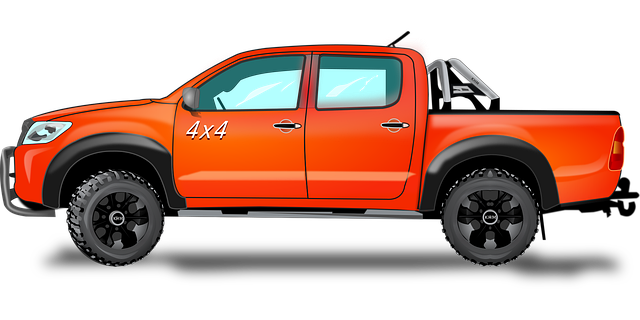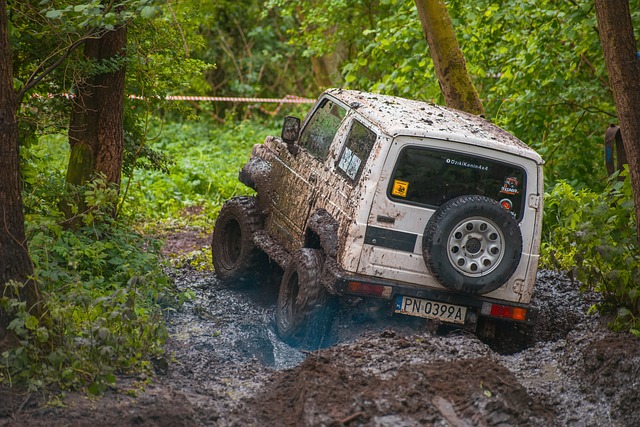Hitch balls are crucial for Brownsville fleet truck recovery equipment. They provide secure attachment points, enabling efficient towing and recovery in various situations like muddy terrain or accidents. These balls come in different materials (steel, aluminum, plastic) for diverse needs, offering enhanced security, cost-effectiveness, and versatility. Installation requires safety measures, including proper tools and regular maintenance to prevent wear and damage. When selecting a hitch ball, consider vehicle type, load capacity, and usage patterns for safe towing.
Hitch balls, a fundamental component in truck recovery equipment, serve as pivotal connectors for towing and hauling large vehicles. This article explores the versatile nature of hitch balls, their diverse types, and their integral role in fleet management, particularly within Brownsville’s bustling trucking industry. We’ll delve into their benefits, from enhanced security to cost-efficiency, and guide you through selecting the perfect hitch ball for your needs. Safety and maintenance practices will also be discussed, ensuring a durable and reliable towing experience.
- What are Hitch Balls? (Explain the basic concept and their purpose in truck recovery)
- Types of Hitch Balls: (Describe different varieties based on material, capacity, and design)
- Brownsville Fleet Application: (Highlight how hitch balls are utilized in fleet management, especially for large trucks)
- Benefits of Using Hitch Balls: (Discuss advantages like increased towing security, cost-effectiveness, and versatility)
- Selecting the Right Hitch Ball: (Provide guidelines on choosing a suitable hitch ball based on vehicle type, load capacity, and usage)
- Safety Precautions and Maintenance: (Offer tips for safe installation, proper usage, and regular upkeep to ensure longevity)
What are Hitch Balls? (Explain the basic concept and their purpose in truck recovery)

Hitch balls are an essential component of truck recovery equipment, particularly for Brownsville fleet operations. They serve as a secure attachment point for towing vehicles, enabling efficient and safe recovery in various situations. These balls are designed to fit standard trailer hitches, providing a robust connection between the towing vehicle and the disabled or stuck truck.
When a truck encounters challenges on the road, such as getting unstuck from muddy terrain or recovering from an accident, hitch balls come into play. They allow recovery vehicles to pull and guide the troubled truck safely back onto the highway. This equipment is crucial for maintaining fleet efficiency and ensuring the safety of drivers and vehicles in Brownsville and beyond.
Types of Hitch Balls: (Describe different varieties based on material, capacity, and design)

Hitch balls come in a variety of types, each designed to cater to specific needs. Among the most common are those made from sturdy steel or aluminum, renowned for their durability and resistance to harsh weather conditions, ideal for heavy-duty applications such as Brownsville fleet truck recovery equipment. These metal varieties often feature high-capacity ratings, making them suitable for towing large vehicles.
For more versatile use, there are hitch balls crafted from lightweight yet robust materials like plastic or composite resins. While offering lower capacity compared to their metallic counterparts, these designs are often preferred for their ease of installation and reduced weight, thereby facilitating easier handling. Their design may include innovative features such as quick-release mechanisms, enhancing practicality for various situations.
Brownsville Fleet Application: (Highlight how hitch balls are utilized in fleet management, especially for large trucks)

Hitch balls play a significant role in fleet management, particularly for large trucks within the Brownsville fleet. These versatile pieces of truck recovery equipment serve multiple purposes, enhancing safety and efficiency during transportation and storage. When a truck needs to be secured or moved, hitch balls provide a quick and reliable solution. For instance, they can facilitate easy towing or shifting of vehicles within a fleet yard, minimizing downtime and labor costs. By utilizing hitch balls, the Brownsville fleet can streamline its operations, ensuring that trucks are securely attached and easily maneuverable, which is crucial for maintaining a well-organized and safe work environment.
Benefits of Using Hitch Balls: (Discuss advantages like increased towing security, cost-effectiveness, and versatility)

Using hitch balls offers a multitude of benefits for Brownsville fleet owners and truck recovery equipment specialists. One of the key advantages is increased towing security. Hitch balls provide a robust connection between your vehicle and the trailer or load you’re towing, ensuring stability and safety during transit, which is crucial in preventing accidents and protecting valuable assets.
Cost-effectiveness is another significant advantage. Compared to other forms of recovery equipment, hitch balls are relatively affordable, making them an economical solution for fleet managers looking to optimize their budgets. Moreover, their versatility allows them to be used with a wide range of trailers and loads, making them a flexible investment for various transportation needs in Brownsville and beyond.
Selecting the Right Hitch Ball: (Provide guidelines on choosing a suitable hitch ball based on vehicle type, load capacity, and usage)

When selecting a hitch ball for your Brownsville fleet vehicle, consider these key factors. The first is vehicle type: ensure the hitch ball is compatible with your truck’s coupling system, whether it’s a standard or a gooseneck. Next, load capacity is paramount; choose a hitch ball rated to support the maximum weight of the trailer you intend to tow. For instance, if you’re primarily using your fleet for light-duty tasks, a basic 3,500 lbs (1,587 kg) hitch ball may suffice. However, if you frequently haul heavier loads or specialized equipment like a recovery truck, opt for higher capacity models rated up to 20,000 lbs (9,072 kg) or more.
Finally, consider your usage patterns. If you’re a local fleet operating primarily within the city, standard hitch balls are usually sufficient. But if your Brownsville fleet traverses long distances or frequently encounters rough terrain, look for sturdy hitch balls with added security features designed to withstand harsh conditions and prevent theft. Remember, selecting the right hitch ball isn’t just about convenience; it’s a vital safety measure for both your vehicle and cargo.
Safety Precautions and Maintenance: (Offer tips for safe installation, proper usage, and regular upkeep to ensure longevity)

When installing a hitch ball on your Brownsville fleet vehicle or truck recovery equipment, safety should always be the top priority. Ensure a secure fit by following the manufacturer’s instructions and using appropriate tools. Regularly inspect the hitch for any signs of wear or damage to prevent accidents while towing.
Proper usage involves adhering to the recommended weight limits and ensuring the ball is properly aligned with the hitch receiver. Keep an eye on your surroundings when towing, and always use safety chains or straps to secure the load. For optimal longevity, implement a regular upkeep routine. This includes cleaning the hitch and ball after each use, lubricating components as needed, and performing periodic visual checks for any loose parts or signs of degradation.
Hitch balls are a versatile and essential truck recovery equipment, especially for fleet management in Brownsville. Their diverse types cater to various vehicle needs, offering increased towing security, cost-effectiveness, and ease of use. By selecting the right hitch ball based on specific guidelines and maintaining them properly, fleets can ensure safe and efficient operations. Incorporating hitch balls into your Brownsville fleet not only enhances towing capabilities but also contributes to overall safety and longevity of vehicles.



